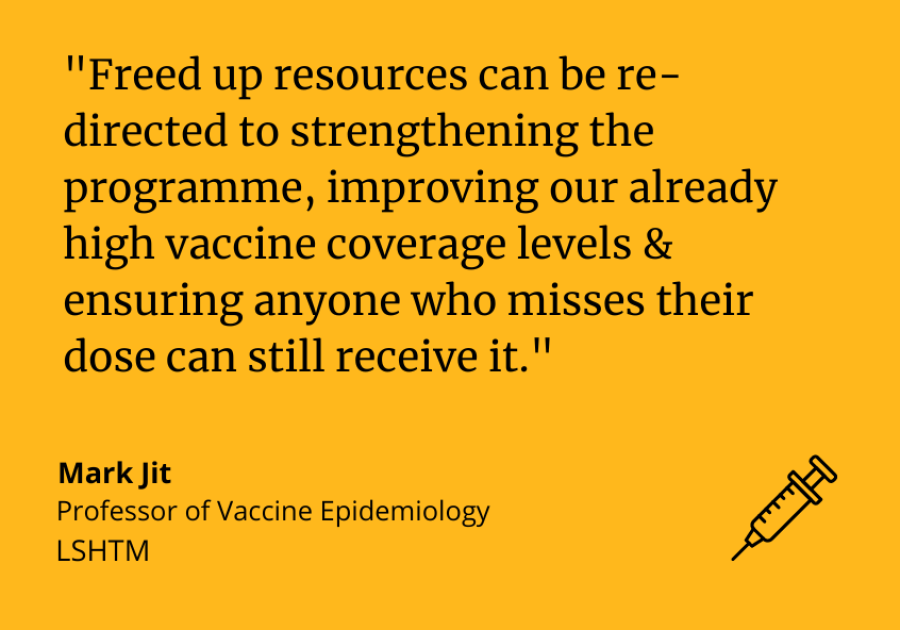Expert Comment – UK HPV vaccination programme to move to single dose from September
20 June 2023 London School of Hygiene & Tropical Medicine London School of Hygiene & Tropical Medicine https://lshtm.ac.uk/themes/custom/lshtm/images/lshtm-logo-black.png
Mark Jit quote card
Teenagers and other eligible individuals under the age of 25 will now be offered one dose of the human papillomavirus (HPV) vaccine instead of two, according to an announcement from the UK Health Security Agency today.
From September, those aged 12 to 13 years old, as well as eligible gay, bisexual and other men who have sex with men (GBMSM), will receive one dose of the vaccine which is used to protect against HPV-related cancers.
Other eligible individuals, such as GBMSM aged 25 to 45 years old or people who are immunosuppressed will, however, remain on current vaccination schedules.
The announcement comes as a result of mounting evidence for the protective value of the single dose schedule, which has led the UK Joint Committee on Vaccination and Immunisation (JCVI) and the World Health Organisation’s Strategic Advisory Group of Experts on Immunisation (SAGE) to recommend the update.
The UK HPV vaccination scheme has provided millions of doses since routine vaccination began on the NHS in 2008 and been heralded as one of the most successful schemes of its kind in the world.
Mark Jit, Professor of Vaccine Epidemiology at the London School of Hygiene & Tropical Medicine (LSHTM) comments: “HPV vaccines are even more effective than we originally anticipated when they were first developed, and are already reducing the number of cancers in the UK and around the world.
“Over the last few years, trials and other studies in several countries have shown that a single dose of the HPV vaccine will also provide that type of robust protection, and the antibodies against HPV that are generated after one dose remain stable over the long-term. Mathematical modelling studies also indicate that a one-dose programme will continue to deliver substantial public health benefits.
"The move to a one-dose programme in the UK reflects this evidence, and is consistent with the conclusions reached by the World Health Organization, as well as similar moves by several other countries including Australia and Ireland.
“As JCVI noted, the resources freed up from the move to one dose can be re-directed to strengthening the programme, improving our already high vaccine coverage levels and ensuring that anyone who misses their dose still has other opportunities to receive it.”
If you enjoyed this article and would like to build a career in global health, we offer a range of MSc programmes covering health and data, infectious and tropical diseases, population health, and public health and policy.
Available on campus or online, including flexible study that works around your work and home life, be part of a global community at the UK's no.1 public health university.